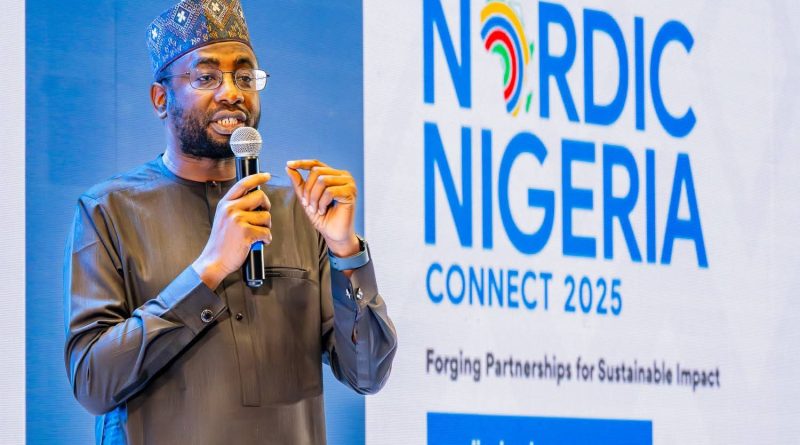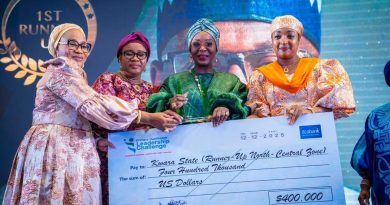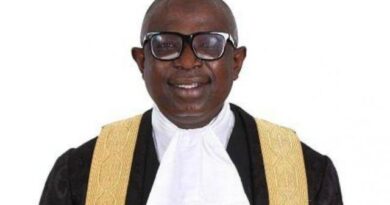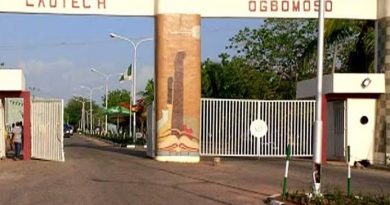Nigeria Targets Sovereign Cloud, 125,000km Fibre Network — NITDA DG
Nigeria Targets Sovereign Cloud, 125,000km Fibre Network — NITDA DG
By Alabidun Shuaib AbdulRahman
The Federal Government says it is intensifying efforts to strengthen Nigeria’s digital backbone through the development of a sovereign cloud ecosystem and the expansion of the country’s terrestrial fibre network to 125,000 kilometres.
Director-General of the National Information Technology Development Agency (NITDA), Kashifu Inuwa Abdullahi, CCIE, disclosed this while delivering a keynote address at the Nordic Nigeria Connect 2025 conference held in Lagos, with the theme “Nigeria’s Digital Infrastructure Ambition and Path to Sustainability.”
Inuwa said the two major projects form part of President Bola Ahmed Tinubu’s Renewed Hope Agenda, which aims to reform the economy for sustainable growth, enhance infrastructure, and accelerate diversification through digitalisation and innovation.
READ ALSO: From Car Wash to First Class: The Inspiring Journey of Muftau Mubarak Shittu Atunlushe
According to him, the initiative tagged Project BRIDGE seeks to extend broadband connectivity across Nigeria through public-private partnerships, while the National Sovereign Cloud Initiative is designed to secure the country’s data and reduce dependence on foreign cloud services.
“The Project BRIDGE initiative is expanding Nigeria’s terrestrial fibre network to 125,000 kilometres through collaboration with the private sector,” Inuwa said.
“At the same time, the National Sovereign Cloud Initiative will build a secure and competitive data storage ecosystem within Nigeria’s jurisdiction.”
He noted that these efforts would enhance digital access, improve service delivery, and promote digital sovereignty.
“Relying solely on foreign cloud regions does not guarantee business continuity or digital independence,” he warned. “We must build the capacity for digital self-determination.”
The NITDA boss explained that Nigeria’s digital transformation agenda is built on two key frameworks — the Shared Digital Backbone and the Operational Backbone.
He described the Shared Digital Backbone as the hardware layer, which includes terrestrial fibre optics, subsea cables, and green data centres, while the Operational Backbone covers the country’s Digital Public Infrastructure (DPI), made up of interoperable systems such as digital identity, payment frameworks, and data exchange platforms.
“These layers together create a unified digital ecosystem that empowers startups to develop homegrown solutions tailored to Nigeria’s needs,” Inuwa added.
He identified Policy, People, and Partnerships as the three pillars driving the country’s digital sustainability agenda.
Under the Policy Pillar, Inuwa said the government is putting in place a predictable and pro-innovation regulatory environment, citing the Nigeria Startup Act and Data Protection Act as frameworks that safeguard users’ rights and encourage growth.
On the People Pillar, he pointed to initiatives such as the National Digital Literacy Framework and the Three Million Technical Talent (3MTT) Programme, which aim to build a pool of skilled Nigerians capable of sustaining the country’s digital future.
Speaking on the Partnership Pillar, the NITDA DG said Nigeria is moving from ad-hoc collaborations to structured partnerships with global players, particularly in emerging areas such as Artificial Intelligence (AI).
He highlighted ongoing projects like the Nigeria Stack — which integrates digital identity, payment, and data exchange systems — and the OneGOV Platform, aimed at unifying all government services under a single digital window.
Inuwa also mentioned developments at the National Centre for Artificial Intelligence and Robotics (NCAIR), where the government is driving indigenous innovation through initiatives like the AI Collective and N-ATLAS, Nigeria’s homegrown large language model.
The NITDA DG emphasised the importance of collaboration with international partners, identifying the Nordic region as a key ally in advancing Nigeria’s digital ambitions.
“The Nordic countries have built some of the world’s most resilient digital economies. Nigeria stands to gain from their experience while offering our vibrant talent pool and creativity in return,” he said.
Reaffirming the agency’s commitment to the country’s digital journey, Inuwa said Nigeria’s future lies in harnessing technology to achieve self-reliance and economic growth.
“With clear vision, deliberate strategy, and inclusive policy frameworks, we are confident that Nigeria will not only achieve digital sustainability but also lead Africa’s digital transformation,” he declared.




